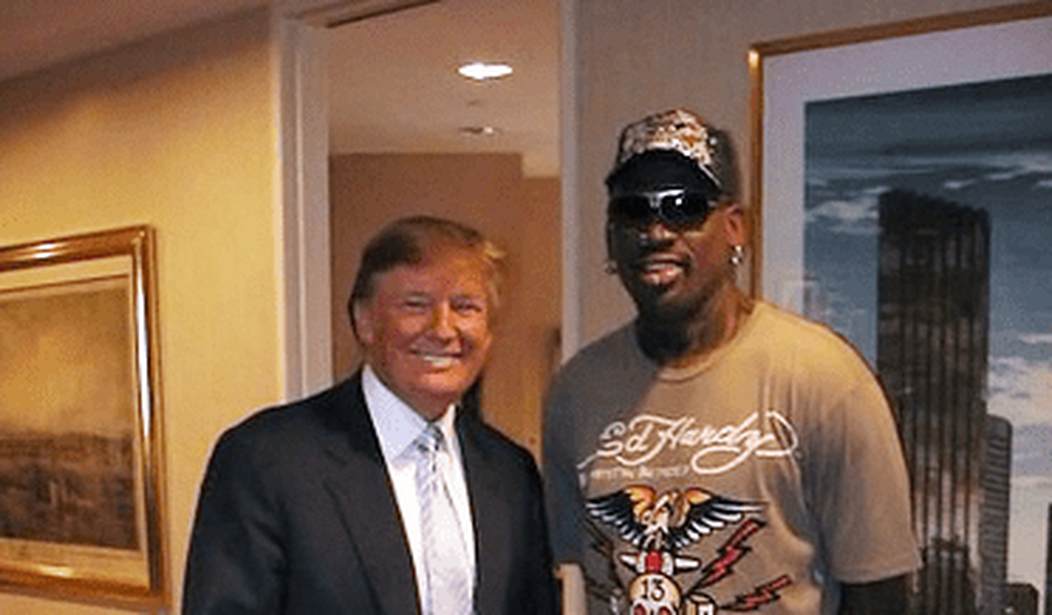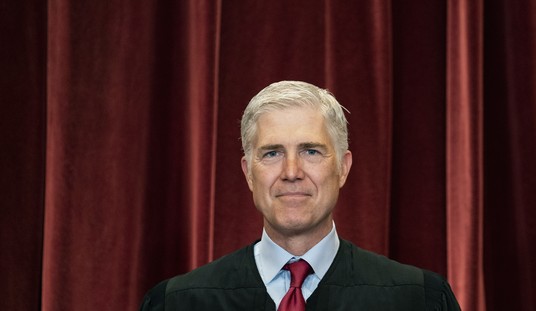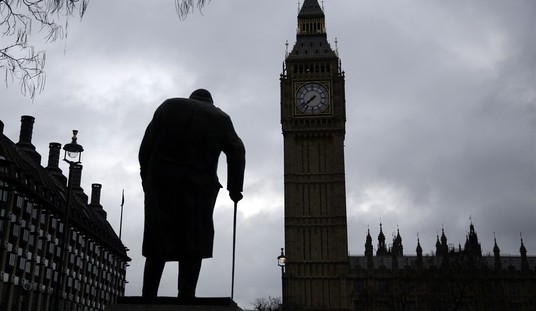Real estate mogul Donald Trump recently declared that if he becomes president, “Christianity will have power.” This is more than a little unsettling for Christians who take Jesus at his word when he said “my kingdom is not of this world.” But some detractors go too far, equating the movement of conservative evangelicals in politics—the “Religious Right”—with the xenophobia and celebrity worship associated with Trump and his followers.
The Religious Right is far from unified in support of The Donald. Many politically outspoken evangelicals have attacked Trump, and the evangelical vote in Iowa favored Texas Senator Ted Cruz over Trump (36 percent to 22 percent), with Florida Senator Marco Rubio only one point behind Trump in that group (at 21 percent).
Nevertheless, it fits the agenda of some liberal Christians, Rachel Held Evans in particular, to argue that Trump speaks for the “Religious Right.” In a particularly scathing post, she tied Trump’s call for Christian power to the movement of conservative evangelicals in politics, noting that “while Jesus resisted the allure of power and privilege, it has long been a snare to his followers, and the Religious Right sold its soul long ago” [emphasis added].
Evans is right to oppose Trump’s antics as a poor representation of Christianity, but she goes too far in equating Trumpism with the Religious Right.
Where Liberals Are Right
Evans gets a few very important points right. “The gospel isn’t about protecting power and privilege, but rather about surrendering them until God’s vision of justice is fulfilled,” she argues.
This is categorically true—Jesus told his followers to willingly sacrifice not only the coat off their back, but the shirt also, in order to demonstrate God’s love. He also insisted they not rise up against the Roman authorities, even though some thought the Messiah was supposed to lead a political revolution.
Emphasizing Trump’s attacks on illegal immigrants, his insults directed at a disabled journalist, and his sexist comments, Evans adds that “the kind of people Donald Trump and the Religious Right [more on this later] deem acceptable collateral damage in their quest for power—the poor, the oppressed, the marginalized, the hated minorities—are the very people Jesus prioritized.”
Here again, Evans is right, but extremely uncharitable—even to Donald Trump. In one particularly powerful passage of the Gospel of John, Jesus reaches out to a Samaritan woman. Not only did Jews look down on Samaritans at the time (they had abandoned the faith after Israel split into two kingdoms), but the woman was a notorious adulterer, and Jesus offered her forgiveness and “living water.”
Nevertheless, Jesus urged his followers to abide by the laws, and still required repentance for sinners. He would embrace a homosexual, but encourage the man to repent of his sins. Jesus was never shy about condemning popular ideas.
Jesus’ message of acceptance was really driven home at a church service Trump attended in Iowa, although the preacher glossed over the harder parts. “Jesus has come to proclaim freedom and healing to those who are the most unloved, who are the most discriminated against, the most forgotten in our community and in our world,” the Rev. Dr. Pam Saturnia declared.
Saturnia went further: “Jesus has come to proclaim the year of the Lord’s favor on the teenagers who are homeless, on the Syrian refugees, on the Mexican migrants, and the people who find themselves prisoners of addiction and their families, on the poorest of the poor in Haiti—Jesus has come for them.”
This message did not sit well with Donald Trump, but it is accurate, at least in spirit. Jesus did tell us to reach out to the poor, although he did not have a political program to force people to do so. This is the main problem when Christianity becomes too liberal—it starts to court power on the other side of the spectrum.
Where Rachel Held Evans Goes Wrong
Evans fundamentally misunderstands how many conservative evangelicals approach politics, partially because she herself approaches it from more of a liberal standpoint. “Racism and xenophobia remain powerful forces in our country, as does celebrity worship, and white Christians aren’t as immune from these influences as they like to think.”
Evans lists three Trump themes that resonate with the Religious Right:
- a glorified nostalgia for the past (“make America great again!” “America was once a Christian nation!”) that minimizes the historical suffering of women and minority groups in this country,
- an overwrought persecution complex that confuses sharing civil rights with others with being persecuted by them, and
- a persistent fear of the perceived “other”—Muslims, LGBT people, immigrants, refugees, etc.—that results in culture wars meant to “take back” the public square.
There is a lot more to each of these issues than a lust for power and a “fear of the other.”
As for the first, is it really minimizing “the historical suffering of women and minority groups” when a candidate like Ted Cruz comes out in defense of constitutional limitations on the size and scope of the federal government? Conservatives do not advocate for repeal of the Eighteenth Amendment which gave women the right to vote, or the Thirteenth Amendment which abolished slavery. Indeed, Republicans spearheaded both amendments.
Conservatives do not deny the injustices done to women, blacks, and native Americans, but they believe the best way to rectify those injustices is to have a free society where, as Martin Luther King put it, “they will not be judged by the color of their skin but by the content of their character.”
The call for “Civil Rights” is more tricky. When Evans accuses conservatives of confusing “sharing civil rights with others with being persecuted by them,” she is likely referring to the gay marriage debate. Or, more specifically, cases like that of Aaron and Melissa Klein, who were fined $175,000—more than their life savings—for declining to bake a cake for a lesbian wedding. The bakers did not turn the woman away because of her sexual orientation—they just didn’t want to partake in a public event which contradicted their belief in traditional marriage.
Rights for civil unions between all couples is one thing, but people like Aaron and Melissa Klein are far from mixing up “sharing civil rights” and “being persecuted.” The Kleins declined to participate in a public event, and they got hit for it. Some conservative Christians may have a “persecution complex,” but most find the “War on Christmas” theme—especially when it comes to Starbucks’ red cups—to be a non-issue.
Evans’ third point, a “persistent fear of the perceived other,” applies more to Trump supporters than religious conservatives in general. She lists “Muslims, LGBT people, immigrants, refugees, etc.” against whom many may have an irrational animus, but whom conservatives understandably view with suspicion.
Most Muslims do not support radical terror based on Islam, and some are even patriotic American heroes, but it is impossible to deny the connection between some forms of the Islamic faith and the attacks on Paris and San Bernardino, especially in the days of the Islamic State (also known as Daesh or ISIS). A certain degree of suspicion may be forgivable, especially following reports that terrorists have posed as refugees. This is protectiveness, not xenophobia.
Besides concerns of terrorists posing as refugees, the immigration issue is not as one-sided as many liberals would have us believe. Legal immigrants must pass through tons of hoops—and many are glad to, until they see illegals get off scot free.
As for suspicion of LGBT people, the Kleins’ case gives many conservatives who share the bakers’ belief in traditional marriage a chill up their spine. An irrational fear of gay people drives Christians much less than a rational fear that their legitimate concerns and religious beliefs will be dismissed as hateful.
Why Evangelicals Don’t Like Trump
None of this is to defend the bloviating billionaire at the top of the Republican polls. Donald Trump’s words and positions really do suggest a “fear of the other,” a kind of “white identity politics.” As in the latest Republican debate, Trump promises, “If I am elected president, we will win, we will win, and we will win.” Light on details, big on bravado.
“I’m huge with the evangelicals.” – a verse somewhere in Two Corinthians.
— Russell Moore (@drmoore) February 2, 2016
Trump is an unlikely fit for the Christian right in many ways. As Evans rightly points out, he has boasted about extramarital affairs, profited off of casinos and strip clubs, and said he doesn’t need to ask God for forgiveness.
Todd Littleton, a Southern Baptist pastor in Oklahoma, argued that Trump’s appeal comes from many evangelicals being “largely fearful people.” This may be true of Trump supporters, but evangelicals are more complicated. As Littleton later explained, “it’s an ironic move for a Christian person to be motivated by fear,” since “the very sacred text they say they believe actually says ‘love casts out fear.’”
Conservative Christians are not driven by baseless fear, but reasonable suspicion. It is past time for pundits to acknowledge their viewpoints, rather than demonizing them.








Join the conversation as a VIP Member